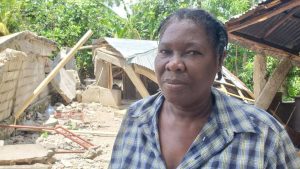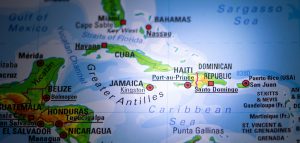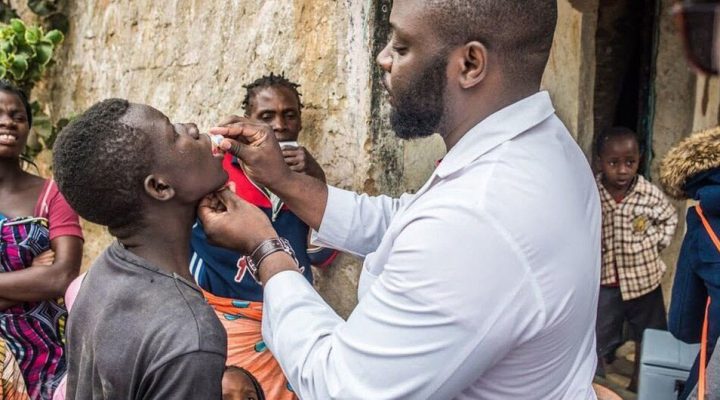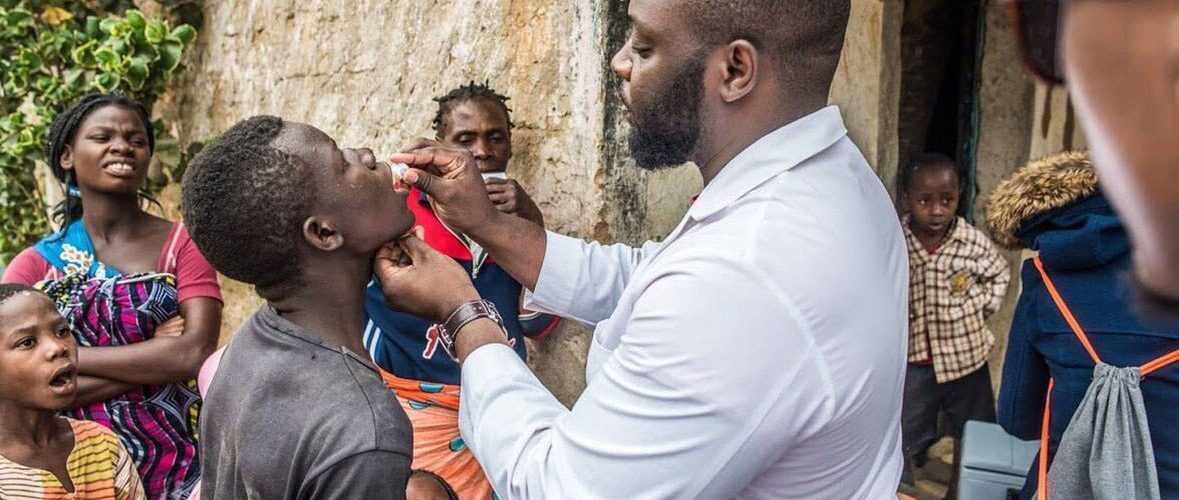The White House this week approved 18 months of additional Temporary Protected Status for Haitian nationals already in the U.S. and opened the door for newer arrivals to apply for the legal protection assuming they entered the country before Nov 6.
“We are providing much-needed humanitarian relief to Haitian nationals already present in the United States,” Secretary of Homeland Security Alejandro Mayorkas said Dec. 5. “The conditions in Haiti, including socioeconomic challenges, political instability and gang violence and crime — aggravated by environmental disaster — compelled the humanitarian relief we are providing today.”

Yvrose is one of thousands in Haiti who lost everything to the 7.2 magnitude earthquake in 2021. (Photo: Evans Bernardin for ADRA Haiti)
The Department of Homeland Security said the decision to extend and redesignate TPS for some Haitians was made after interagency consultations and determining that ongoing violence, economic upheaval, political insecurity and food and water shortages have been intensified by catastrophic earthquakes and an outbreak of cholera.
Immigration advocates applauded the White House decision.
“We welcome this much-needed announcement from the Biden administration. We rejoice and celebrate with our Haitian siblings and stand undeterred in solidarity as we continue to work with and for the Haitian and Haitian American communities,” said Guerline Jozef, co-founder and executive director of Haitian Bridge Alliance and the Black Immigrants Bail Fund.
The alliance cited a United Nations report that 4.7 million Haitians are experiencing acute hunger and that 19,000 are suffering from famine conditions. Such figures underscore the need for TPS protections for Haitians in the U.S., Jozef said. “We acknowledge that there is much work to be done to welcome all people in need of protection with dignity. …We also call for the same protection for all deserving of safety, such as nationals from Mauritania, Guatemala, Honduras, El Salvador, Nicaragua and others.”
The Florida Immigrant Coalition estimates 150,000 Haitians already covered by TPS will benefit from the extension and an additional 60,000 may be eligible to apply due to the redesignation.

Haitian children carrying water. (Photo courtesy of The Boren Project:
“We want to thank the many legislators, communities and advocates who stood up for Haiti,” coalition Executive Director Tessa Petit said. “Their advocacy is certainly a sign of awareness to the current situation in Haiti and the pain and struggles of Haitians inside and outside of the country.”
According to U.S. Citizenship and Immigration Services, TPS is a temporary designation granted by the Secretary of Homeland Security to nations where internal conditions prevent foreign nationals already in the United States from returning home safely. Those conditions may include armed conflict, environmental disasters, epidemics or other extreme-but-temporary conditions.
Immigrants granted the status are eligible for employment and travel, cannot be removed from the U.S. and cannot be detained based on immigration status.
The U.S. currently has 14 nations designated for TPS in addition to Haiti, including Afghanistan, Burma, Honduras, Nicaragua, Venezuela, Syria and Ukraine.
Anna Gallagher, executive director of the Catholic Legal Immigration Network, welcomed the extension of TPS for Haiti.
“The conditions in Haiti are among the direst on earth,” she said. “Recent reporting has only brought further to light the extreme challenges Haitians are facing in-country, including gang violence, political chaos and acute poverty. Haitians living in the United States can breathe a sigh of relief at this news, which will provide them temporary protection while solutions to the crisis in Haiti are sought.”

Close-up fragment of a world map with selective focus on Dominican Republic,Santo Domingo,Haiti,Jamaica,Caribbean Sea
Petit pressed the U.S. to do as much as it can to help Haitians suffering at home and abroad. “As we celebrate this small win, and a relief for the many in fear, we urge legislators, advocates, international human rights organizations, and particularly the Biden administration to support the cries of Haitians as we denounce the violence and human rights violations currently happening in Haiti and the Dominican Republic. Injustice anywhere is a threat to justice everywhere.”
David Metellus, director of politics and policy for the Florida Immigrant Coalition, touted the economic benefits of the TPS extension.
“Haitians living in the United States, currently eligible for TPS, contribute $2.6 billion annually to our economy, and 81% of them are part of the American labor force, providing essential services at a time of worker shortages and high inflation.”
Haitians covered by TPS have been in the United States for 15 years, on average, and built families consisting of nearly 200,000 U.S. citizens, he said.
“Continuing to provide TPS protections for Haitian nationals ensures families remain together and continue building meaningful lives in our society. Moreover, redesignating Haiti for TPS allows more Haitians in the U.S. to enroll in the program and contribute their skills and talents to the American workforce and communities around the country.”
But the Department of Homeland Security emphasized that many Haitians will not qualify under the redesignation.

Pastor Eleuterio Gonzalez with some of the 21 Haitian migrants he helped cross into the U.S. after a one-year wait in Mexico.
“It is … important to note that TPS will apply only to those individuals who already have been residing in the United States as of Nov. 6, 2022, and who meet all other requirements. Those who attempt to travel to the United States after this announcement will not be eligible for TPS and, if they enter irregularly or without legal authorization, will be subject to repatriation.”
The World Bank describes Haiti as “the poorest country in the Latin America and the Caribbean region and among the poorest countries in the world.”
Fellowship Southwest reported yesterday that it had assisted 21 Haitian migrants into the U.S. to continue their asylum process after a one-year wait in Reynosa, Mexico.
Related articles:
The history of Haiti you probably don’t know | Opinion by Wendell Griffen
We cannot now close our border to those fleeing the horror we helped create | Opinion by Chris Conley
Baptists worldwide uniting to offer aid to Haiti as challenges mount


